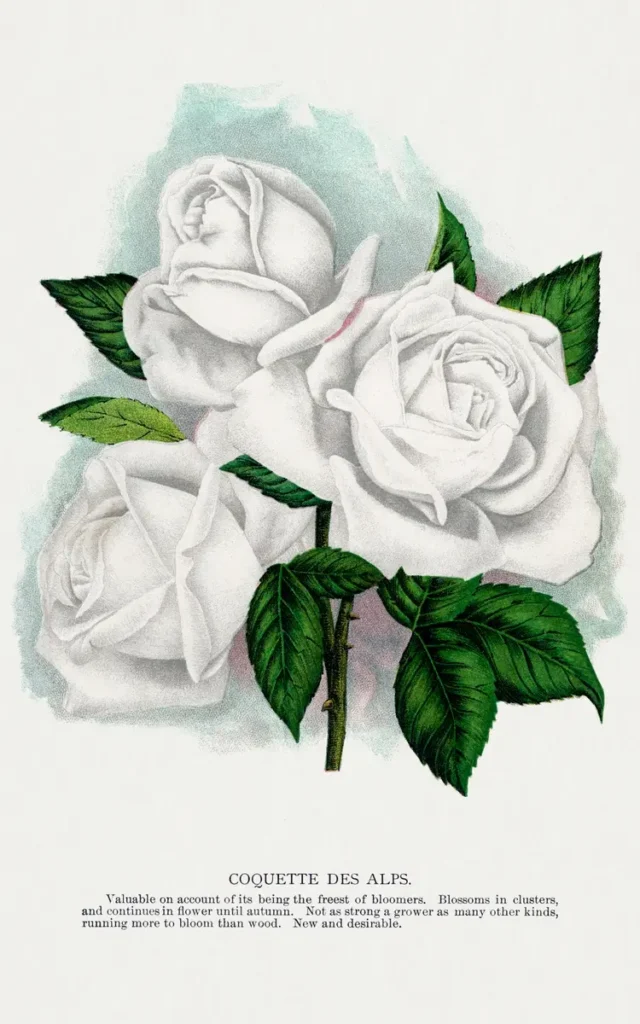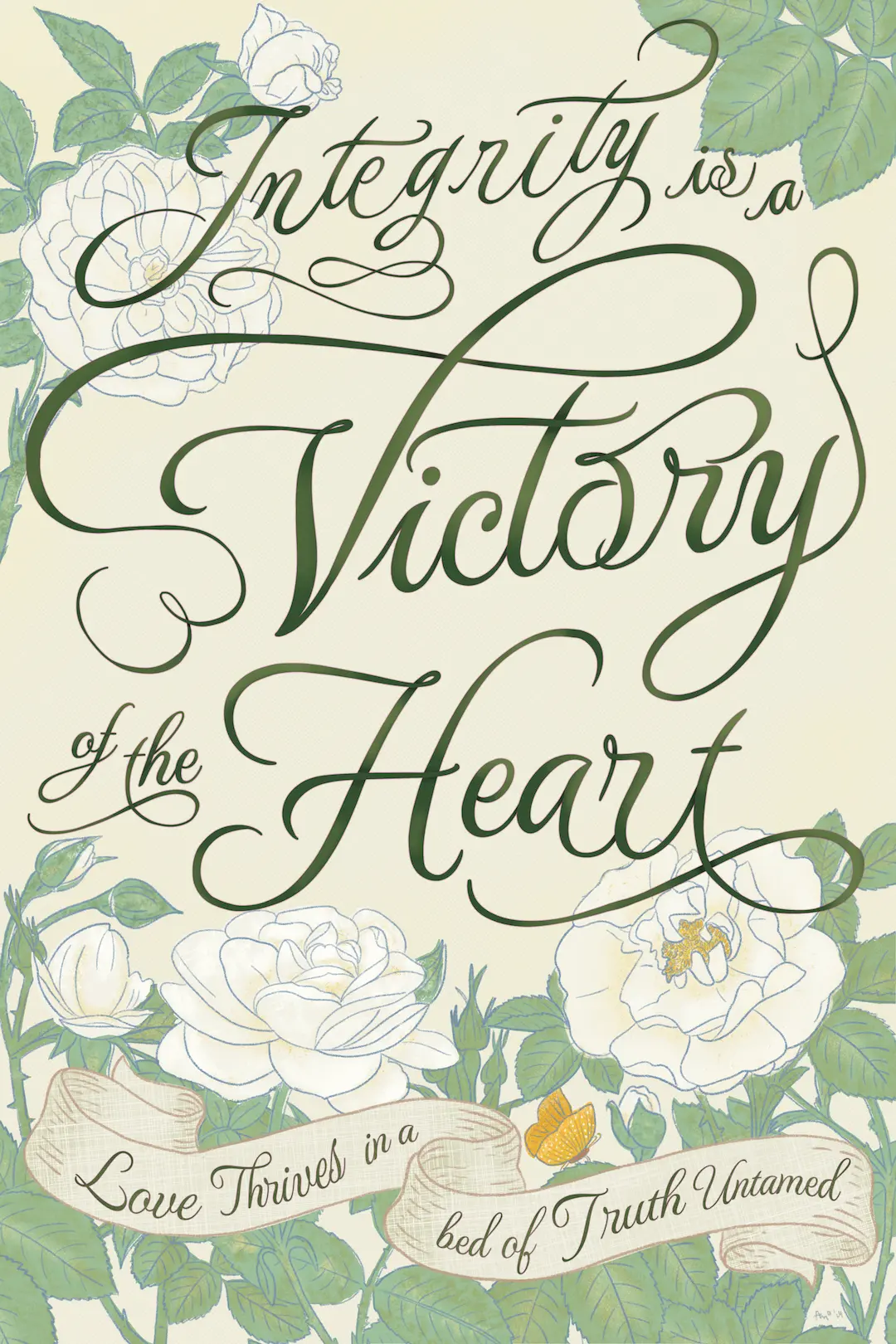Table of Contents
The definition of integrity
The word “integrity” can kind of have a heavy weight attached to it – lots of times it’s used to describe someone staunchly sticking to their guns or being consistent in character over time. There’s something dense, simplistic and uncolorful in that picture: a hardness, an impenetrability; the lack of change, movement, or growth. Is the social definition of “integrity” about staying the same, rather than staying true? And that sense, does “integrity” keep us from being who we really are? Here are some definitions the American Heritage Dictionary offers:
- Steadfast adherence to a strict moral or ethical code.
“A leader of great integrity.“ - The state of being unimpaired; soundness.
“The building’s integrity remained intact following the mild earthquake.“ - The quality or condition of being whole or undivided; completeness.
“Replaced a lost book to restore the integrity of his collection.”

In my experience, integrity has a lot more to do with releasing burdens and finding internal peace than it does with white-knuckling through a bumpy ride.
Integrity is about authenticity, a holistic sense of honoring all parts of the self and the external world. Integrity is not stubbornness, it doesn’t turn a blind eye, and it doesn’t invalidate.
In true integrity, there is a softness in the steadfastness – it can only blossom from an opening of the heart to all that is – and from that place taking the compassionate, loving action that is most in alignment with what we know to be true. It feels free and it feels open, and it also feels rooted in the body and Earth herself, in what is.
In short, to be firm in “integrity,” you have to be soft first. The state of “soundness” and clarity can only be accessed from a place of comfort or acceptance in the existence of everything, because this is where truth is found.
To find peace in wholeness, we must journey through the awareness, discomfort, acceptance and welcoming of everything: within and without.
Two ways to say goodbye
Earlier this year, I found myself in two rather dramatic endings of relationships. Both of them representing significant investments of my time, attention, and energy, and it was quite a shock to watch the “ROI” vanish into thin air as both exchanges took their final turns.
In one experience, the person “exploded”: hurling blame, complaints and accusations at me and completely throwing good faith out the window. In the other, the person “imploded”: shrinking away slowly into total disappearance, all the while prodding me with passive-aggressive comments that implied I was at fault. In both scenarios, I was shocked by the warped stories and controlling behaviors coming from people who were supposed to share my values around gentle conflict resolution. Both times, I drank in the venom they spat at me; I let it steep, ferment and bubble in my pelvic bowl until I could return to them with words of love and honesty. And with both of them, it was my invoking a boundary that prompted these endings.
Set a boundary and watch what happens
The way a boundary is received by someone isn’t ultimately up to the person setting it. Boundaries come from needs, and needs aren’t negotiable – you can’t tell a plant not to need sun or water, they just work that way. As someone setting a boundary, you can spend days and nights rehearsing a mild “please don’t do that darling” or spit out a loud “STOP THAT!” on the spot, but it doesn’t necessarily change how the recipient will react. At the end of the day, a person’s response to a new boundary is only very telling about who they are and the context around the dynamic that is being interrupted within the relationship. When I stated my boundary, as plainly and respectfully as I could, both of these people clapped back with red-flag responses: on the one hand, protests and reproaches, on the other, silence and dismissal.
Conflict resolution requires curiosity
There is a difference between discussing an issue with someone who has decided to come forth in sincere curiosity towards the other’s point of view, and with someone who showed up already having made up their mind of what’s what. One path has the potential for mutual, creative resolution. The other path is “my way or the highway,” leaving one partner as the responsible party for the other’s needs, should they accept that role. In our conversations, conducted almost completely in writing (which is a really magical way to sift through conflicts – more on that here), it became clear both of these people had decided I was indebted to them, regardless of my reality. Their story said it was my responsibility to make them feel better, to do the emotional labor, to be the “adult” and make the problems go away. The back-and-forth felt like a tense, twisted tango. In every step, I could feel the other dancer pulling at me, their bodies gripped with rage and fear, silently screaming “please me!” or “do as I say!” or “you wronged me!” And I had to keep stopping, stepping back, validating their experience… and still saying “no.”
I suppose I didn’t have to; I could have given in. I could have made their problems my business, sat on the phone and listened while they complained and raged and maybe gave me a little credit, been patient and gentle and curious and careful, helped them get to the root of all of their pain (which ultimately had nothing to do with me) so we could celebrate its wisdom and find just the right touch to make it all better – isn’t that the “right” and “loving” thing to do, when someone’s having trouble?
Real love is rooted in integrated awareness
In these relationships, giving them what they wanted was not the truly loving thing to do. The sense of imbalance that presented itself revealed an opportunity to integrate my own needs into the larger definition of what it means to “act out of love.” And to do that, I had to grow into a version of me who was more firm, emphatic, stark, and even stoic in the face of others’ distress. As thorny as that was, each time I had to restate a boundary, or dream up an alternative solution to a non-option, it required me to venture deeply into the most tender parts of my being and listen to them.
I had sit with how sad those tender parts of me were, how much they had tried; their grief at the “waste” of being willfully misrepresented by someone to whom they had given so much love along the way. I had to feel how tired my body was from being the over-functional node in these exchanges; how my softness was smooshed and rubbed raw with all the responsibility I’d taken on in order to keep these relationships alive.

I had to allow all of my being to be present: not just the parts that have it all together, love to help others, and want to maintain relationships instead of ending them – but also the parts that need love, care, and nourishment. Integration is approving and honoring the wisdom of all parts, not dissolving one thing in favor of another.
The authentic me
She’s someone that doesn’t try to manage other people’s experiences in order to produce a specific outcome. The “real” Abigail is much stronger: she can allow people to feel how they feel, and feel what they’re feeling, even when the empathy is making her terribly uncomfortable. She is someone who is secure enough that she can let people use her as a villain and write their own story, rather than clinging to any specific version of events as the shared, socially-sanctioned narrative.
She is someone who can hold all of the ugliness and sorrow, inside and out, and recognize it for what it truly is: beautiful, human, connective and inherently powerful. She is someone who uses that as fuel to create the world she wants to live in.
It turns out they preferred the caretaking version of me, and would rather go our separate ways than work through their stuff on their own time and preserve the relationship.
And if I’m honest, yeah, it kinda sucks for that to be the verdict. I had to wrestle with that: all the thoughts like “But what will people think?” and “How can she lie to herself like that?” and “Oh no, am I a bad person?” and “What if I had done something different?” and “Is this how life has to be?” – along with all the heart-and-tummy-wrenching implications of possible answers to those questions. It’s taken me months to chew through it, but I believe I’m the better for it, and I’m growing into a bigger, realer version of me every day because of it. In fact, I probably wouldn’t be here writing if these things wouldn’t have happened.
Integrity is integration, not self-sacrifice
If self-sacrifice is a drug, people in my native culture are getting high all the time. Even if consciously they’d say it’s not the case, a lot of folks love how it feels to not speak their truth, duck out of making changes to agreements, and avoid rustling any feathers – the tightness of it all feels safe and snug and cozy and warm, and that is delicious. It can also be unpleasant.
I get that a lot of people would rather pretend their needs aren’t important, instead of risk losing a relationship. And in some weird traditional sense, that’s maybe how a lot of people would define “integrity” – staying “steadfast and sound” in loyalty, through the upheaval of the ebbs and flows of life.
But when you go down that road, it can be a hard, long walk. It constricts, it hurts, and things you didn’t need to lose are lost along the way. Maybe you keep some precious things safe and out of harm, but what if they’re actually hurting you? And what if there’s another way?
What if you could walk down a road where you get to keep all the things that matter most, that make you come alive? What if that road showed you the person you’re becoming, rather than who you’ve been? What if people love that person, and you love them too? What if you could leave behind the things that hurt you, in love and gratitude for the gifts they gave you before?
It feels soft, it feels expansive; maybe a little scary, maybe sometimes a little lonely. But if I have to make a choice between peaceful loneliness or uncomfortable social ties, at one point or another, I’ll have to take peace.
Peace is priceless, it’s gentle, and it’s where my heart can rest. And that, to me, is integrity.

Dear Reader…
How do you know when it’s time to set a boundary?
Have you ever regretted attempting to create change within a relationship?
How does the concept of “integrity” feel in your body and lived experience?
How has the loss or transformation of a relationship helped you become a more authentic version of yourself?
If it’s in your pleasure to share, please comment below!
Leave a Reply